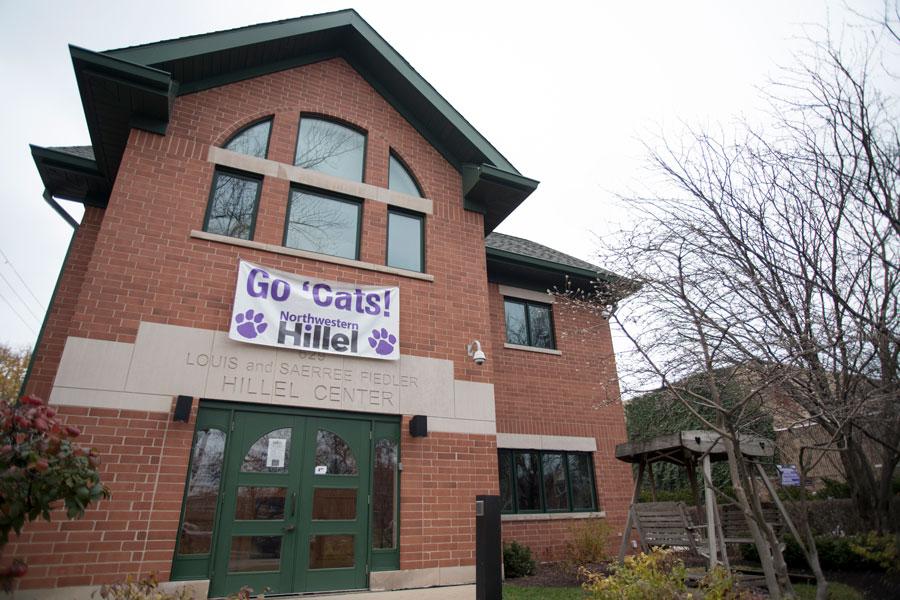Hillel symposium continues campus conversations about Zionism, anti-Semitism and racial justice
Daily file photo by Colin Boyle
Hillel’s food service was the only Passover-appropriate, kosher on-campus dining option during the weeklong celebration. Students were able to pick up lunch and dinner to-go and free of charge.
January 26, 2021
After exchanges between University President Morton Schapiro and NU Community Not Cops this fall, Northwestern Hillel tackled questions about Zionism, anti-Semitism and racial justice in a weeklong symposium this month.
After demonstrations outside his home in October, Schapiro said in an email to the University community the protesters’ rhetoric toward him held anti-Semitic undertones. In response, NUCNC said they condemned anti-Semitism and their words had been misconstrued by Schapiro because “anti-Zionism is not anti-Semitism.”
Hillel Social Justice Coordinator Lydia Greenberg, who helped organize the symposium, told The Daily many Jewish students felt “hurt, confused, (and) frustrated” either at the administration or other students after the heated back-and-forth in the fall.
“What happened on this campus is not unique to Northwestern,” Greenberg said. “These are issues that come up around the country — when does Zionism come up in social justice movements? When is that appropriate, and when is it not? When is anti-Zionism anti-Semitism? Is abolition compatible with Zionism?”
The symposium aimed to address these questions and motivate students to continue educating themselves, Greenberg said. She worked with a cohort of Jewish students and faculty to plan five events from Jan. 11-14. Each event, with the exception of the final, students-only “Town Square,” was open to the entire NU community.
Dr. Yehuda Kurtzer, president of Shalom Hartman Institute of North America, spoke in the symposium’s opening event on “Zionism, Anti-Semitism, and the 21st Century” about the reality of disagreeing with certain parts of a larger movement. You are not expected to agree with everyone in a certain coalition about every single issue, Kurtzer said.
“There’s a difference between being told, ‘You can’t be here because your views on this issue keep you out,’ versus insisting that your own issues get centered,” he added. “That’s where this starts to cross over, the insistence that, ‘I want to show up, for instance, on racial justice but at the same time I’m gonna insist that my Israel politics get centered in that space.’”
In the panel “Social Justice Movements and the Jewish Community,” activist Yasmine Esther, who was raised in a Black and Jewish home and whose children are Black and Jewish, said White Jewish people must recognize their privilege when advocating for social justice.
The voices of Black Jewish activists have been amplified in these movements are encouraging, Esther said, but many in the Jewish community still feel uncomfortable acknowledging the benefits of White privilege.
“It’s not a privilege to have to hide your identity — you should not have to hide your Magen David, you should not have to take off your kippah, none of that should happen,” Esther said. “But the fact that you can do that, and then move through a space as a White person is a privilege. My children can not take their melanin off before they go outside.”
McCormick sophomore Natan Gamliel, who helped plan the symposium, said the events created a space where participants could disagree with one another without the discussion turning combative.
The campus conversation last fall, much of which took place over social media, did not allow for as productive a dialogue, Gamliel added.
“Over Instagram or things like that, it’s a lot easier to slip into the mentality of, ‘I need to win this interaction,’” Gamliel said. “Of course, (the symposium) was meant to challenge you to think more broadly and consider more nuances, but it was primarily just meant to be supportive of anybody there. In that way, it definitely was more productive.”
Email: [email protected]
Twitter: @maiapandey
Related Stories:
— How conversations about anti-Semitism divided a campus
— NU Hillel and Religious Action Center host teach-in on civic engagement, voter suppression


